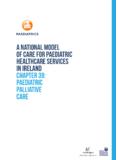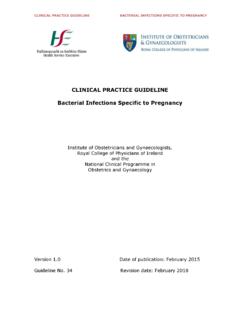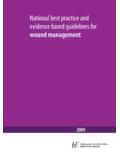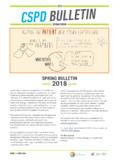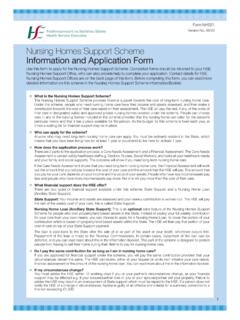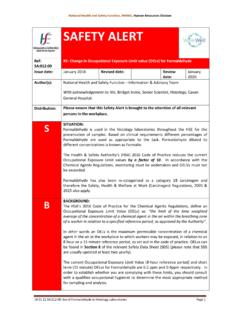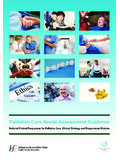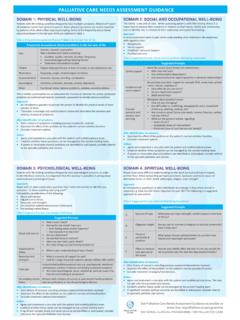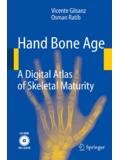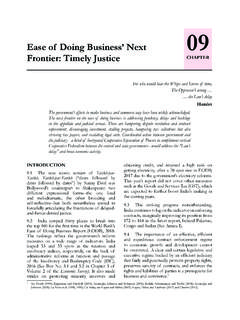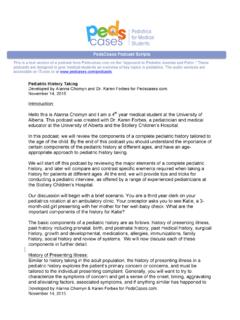Transcription of A National Model of Care for Paediatric Healthcare ...
1 A National Modelof care for PaediatricHealthcare Servicesin IrelandChapter 23:PaediatricEndocrinologyand DiabetesCareClinical Strategy and Programmes DivisionTable of Introduction 2 Paediatric Endocrinology in ireland 3 Paediatric Diabetes in ireland Current Service Provision Proposed Model of care 13 Infrastructural Recommendations 13 Staffing Recommendations Requirements for Successful Implementation of Model of care 15 Gap Analysis and Requirements to Deliver Service 15 Recommendations in the Context of the Proposed New Children s Hospital Priorities for Implementation of this Model of care 20 Resource Provision 20 Regional Centres 21 Endocrine Testing Procedures and Laboratories Programme Metrics and Evaluation Summary Key Recommendations Abbreviations and Acronyms Appendices References 251national
2 Clinical Programme for Paediatrics and neonatology:a National Model of care for Paediatric Healthcare services in InTroduCTIonPaediatric endocrinology encompasses the diagnosis and management of children and adolescents with pathologies that broadly fall into one of two distinct categories: Growth and hormonal disorders a heterogeneous group of disorders that require specialised investigations, patient education, and chronic treatments with close follow-up. (Endocrinology) Diabetes mainly type 1 diabetes mellitus (T1DM) a more homogeneous disorder where short- and long- term health outcomes are strongly correlated with high-quality specialised multidisciplinary care Paediatric endocrinology and diabetes services face many challenges. These include: 1. The need to improve both short- and longer-term Healthcare outcomes through:a) Improving services for children and adolescents with T1DM.
3 Tight metabolic control reduces the risks of short-term and long-term diabetes-related complications. b) Reducing unacceptable delays in access. Timely investigation and management of children referred by paediatricians and GPs optimises outcomes, and current waiting times for outpatient assessment are ) Timely specialised care of children with conditions that present an immediate threat to life and developmental outcome. Examples include children with severe congenital hyperinsulinism (CHI) at risk of profound and recurrent hypoglycaemia; children with adrenal insufficiency at risk of acute decompensation/death; children where endocrine symptoms are presentations of significant underlying malignant or genetic disorders ( multiple endocrine neoplasia, adrenal tumours).d) Multidisciplinary management of children with rare complex disorders requiring input from multiple subspecialties ( disorders of sexual development) e) Centralised specialist management of children with disorders of the hypothalamic-pituitary-adrenal axis ( Paediatric endocrinology/neurosurgery/oncology) with risk of peri-operative acute and ongoing chronic ) Co-management by specialist Paediatric endocrinologists (alongside orthopaedics and radiology) of children with metabolic bone disorders, osteogenesis imperfecta.
4 Many of these patients regularly travel to United Kingdom (UK) specialist centres to access this care , at great inconvenience for the families and also at great expense to the Health Service Executive (HSE).g) Establishment of a National care pathway and dedicated multidisciplinary team (MDT) to deliver services for infants with complex severe congenital hyperinsulinism (including appropriate links to the UK for F-DOPA PET scanning).h) Seamless transition of adolescents with endocrine disorders (including diabetes) to the most appropriate adult endocrine services available for the individual ) Providing sufficient clinical psychology support for these patients with complex chronic conditions. Depressive symptoms, for example, are seen in approximately 10% of children with Complex, and often rare, endocrine disorders require specialised Paediatric endocrine services , in order to provide appropriate, safe and effective care .
5 care is predominantly consultant delivered with clinical nurse specialist (CNS) and extended MDT support. Current insufficient consultant and CNS numbers, and MDT supports, result in an overwhelming and unsafe number of patients being managed by each individual consultant and team. The implementation of the European Working Time Directive (EWTD) has significantly reduced the availability of doctors in training in acute services , which has implications for care delivery. 2national Clinical Programme for Paediatrics and neonatology:a National Model of care for Paediatric Healthcare services in Ireland3. Increasing expectations of service users in terms of timely access to expert care . Outcomes are improved in many endocrine disorders as a result of early evaluation, and this timely access is in the patient s best interests. 4. The current lack of data-driven decision-making.
6 The current deficit in integrated IT, radiology and laboratory facilities across the services delivering care reduces ability to standardise care , audit outcomes, share care safely, reduce duplication of testing, and ensure best use of limited resources nationally. 5. As 70% of Paediatric trainees are female, endocrine workforce planning, as with all other Paediatric subspecialties, needs to anticipate the future needs for extended consultant leave (maternity and parental) and flexible work options. 6. The needs of the patient are 24/7. However, at present, services are configured according to office hours, with the exception of consultant on-call cover. This deficit will need to be addressed within teams and will require extended working days and weekend cover for newly diagnosed management of children within two distinct categories of this Paediatric subspecialty ( endocrinology and diabetes) requires different but complementary skills.
7 Endocrinology Common conditions such as familial short and tall stature, constitutional delay in growth and development, and vitamin D-deficient rickets are part of core Paediatric training, and this care is delivered by general paediatricians in regional hospitals/community settings. In regional settings, conditions that require input from a paediatrician with subspecialty training in Paediatric endocrinology are managed along with shared care of complex endocrine disorders. care is provided at tertiary centres for endocrine disorders which, given their complexity, extended MDT requirements and requirement for co-management with other subspecialties, require centralised care . Many require acute admission, and/or transfer from other services (neonatal or regional), specialised diagnostics and follow-up (see Table 2).Diabetes Children with diabetes (primarily T1DM) are managed by specialised MDTs led by consultants with postgraduate training in Paediatric endocrinology and ongoing continuing medical education (CME) (Edge et al.)
8 , 2012; Pihoker et al., 2009). Specialised MDTs are required to deliver care as close as possible to the patients home, in line with the regionalised Model (Table 2), and in line with the Model of care for all Children and Young People with T1DM (2015). Rarer forms of diabetes, such as neonatal diabetes, usually require more specialised Paediatric endocrinology in IrelandThe Scope of Paediatric EndocrinologyThe expertise necessary to manage complex congenital and acquired Paediatric endocrine disorders encountered by infants/children is not part of routine Paediatric training. Paediatric endocrinology encompasses the care of children with disorders of glucose ( hypoglycaemia and diabetes mellitus); stature (short and tall); puberty; thyroid; water homeostasis; sexual development; adrenal, calcium and bone; pituitary function; rare syndromic/genetic obesity.
9 3 National Clinical Programme for Paediatrics and Neonatology:A National Model of care for Paediatric Healthcare services in IrelandPaediatric endocrinologists provide a crucial referral and consult service for neonatologists, general paediatricians, other clinicians in tertiary centres managing complex Paediatric disorders, and general practitioners (GPs). As congenital endocrine disorders are common (Ogilvy-Stuart and Midgley, 2006) all neonatal units require prompt access to Paediatric endocrinology expertise within a tertiary centre. These disorders can vary in severity and urgency, and the role of the endocrinologist can range from providing advice in test interpretation for general paediatricians and general practioners to emergency evaluation of disorders of sexual development, management of complex pituitary dysfunction and prolonged/recurrent hypoglycaemia.
10 Delayed identification and treatment of adrenal insufficiency, disorders of glucose homeostasis or hypothyroidism can have detrimental lifelong physical and neurodevelopmental effects for the neonate and child (Steinkrauss et al., 2005). These disorders can be complex, rare, require detailed evaluation, and may require prolonged admission for the establishment of safe and effective therapies (Palladino and Stanley, 2011).All centres providing tertiary Paediatric care require specialised staff within a Paediatric endocrinology department. Neurosurgical patients require pre-, perioperative and post-operative management of disorders of sodium and water balance, as well as follow-up for secondary pituitary deficiencies. The majority of current oncology patients require consultation with endocrinology due to the short-term effects of high-dose steroids, secondary diabetes, local tumour, surgery or radiotherapy effects on endocrine systems, and for the management of long-term late endocrine effects of chemotherapy and radiotherapy.
